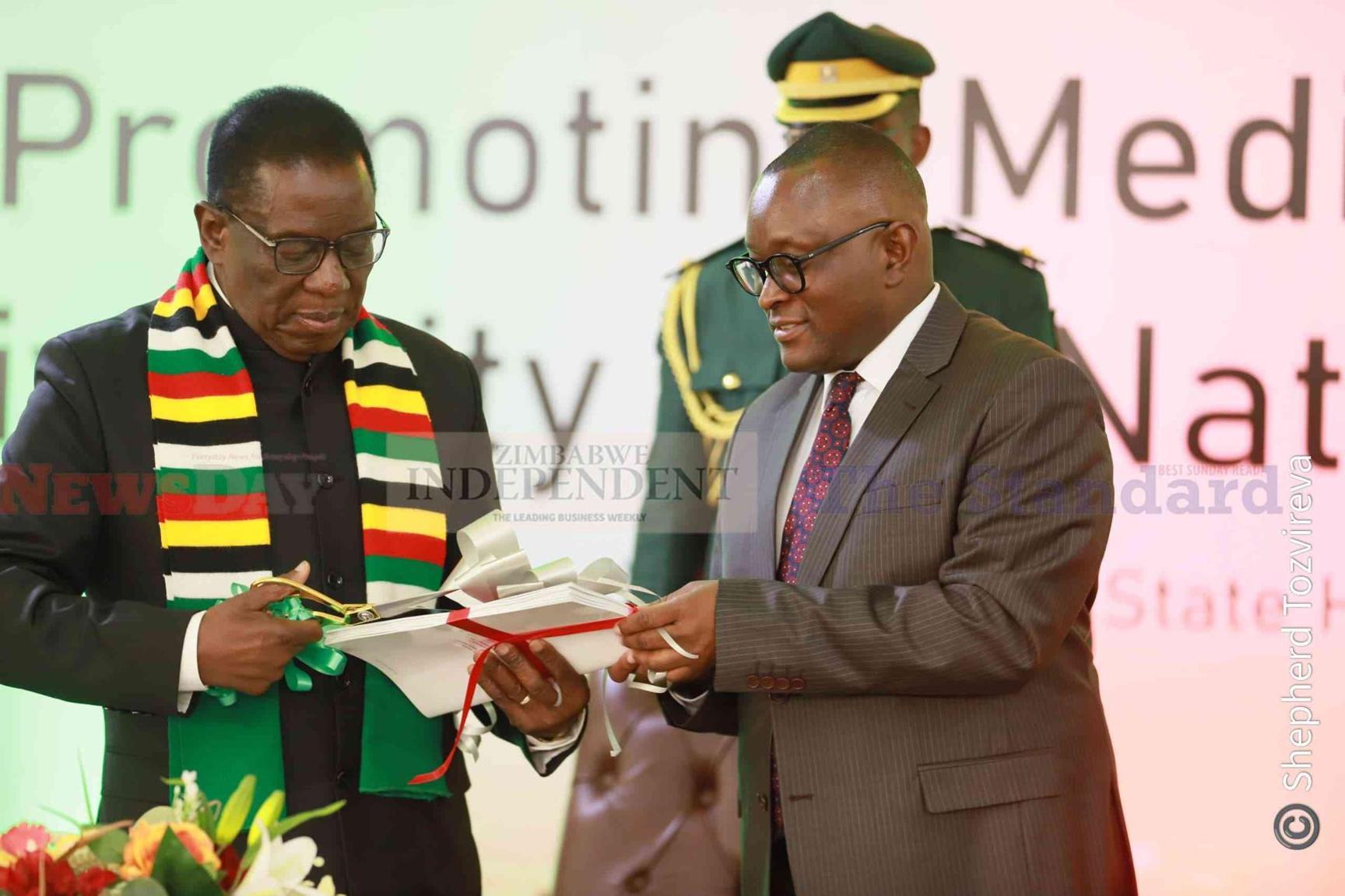Africa-Press – Zimbabwe. MEDIA advocacy groups have raised alarm over veiled criminalisation of the profession under the new Zimbabwe Media Policy that was launched by President Emmerson Mnangagwa on Wednesday at State House in Harare.
The policy seeks to reshape the country’s information ecosystem amid growing concern over sustainability, disinformation and misinformation, disruptions brought about by artificial intelligence and other emerging technologies.
The advocacy groups acknowledged that the policy contains a basket of measures to address pressing industry issues, but quickly condemned attempts at criminalisation of the profession and lack of consultation by authorities.
Voluntary Media Council of Zimbabwe executive director Loughty Dube said threats against journalists overshadowed the positives contained in the policy.
“The sanctions against the media need revisiting to ensure the policy meets democratic benchmarks and to avoid ‘punching the media in the eye’ whenever there are ethical disputes between the media, complainants and the government,” Dube told NewsDay.
“While emphasis on not criminalising the profession is referenced in the policy, the policy goes ahead to set and reinforce the criminalisation of the profession through proffering heavy- handed sanctions for violation of the code of ethics.”
Zimbabwe Union of Journalists secretary-general Perfect Hlongwane said criminalising the profession soiled the intentions of the policy.
“It is quite unfortunate that when you then look at the paths of that policy, especially on a section that deals with penalties and dissenters, you find that the policy penalises journalists,” Hlongwane said.
“It actually is, one would say, a resurrection of a criminalisation of journalism as it were.
“Remember that the media and the government have agreed on a compromise which is co-regulation and we think that should give us direction as to how we need to deal with those that violate media codes and ethics on a peer-to-peer basis.”
Media advocate Mlondolozi Ndlovu said the policy should have introduced concrete measures to protect journalists from State and non-State actors.
“While we welcome the policy, we hope that it will add to what the Constitution already provides in terms of what sections 61 and 62 provide, freedom of expression and access to information, and that the government walks the talk on the need for the protection of the rights of journalists and respecting their rights regardless of whether they are from the privately-owned or the publicly-owned media,” Ndlovu said.
Zimbabwe National Editors Forum (Zinef) co-ordinator Njabulo Ncube said they had long advocated for a comprehensive media policy in light of ongoing inconsistencies within the government regarding the media.
“We acknowledge that the document highlights several important issues that align with constitutional provisions,” Ncube said.
“It is difficult not to question whether these commitments will be implemented, especially given that the policy appears to have been shaped using a divide-and-rule approach, despite its intent to be a landmark framework.”
Ncube said Zinef was waiting for the implementation of co-regulation — a compromise that was agreed upon in principle in place of full self-regulation.
“However, it is concerning that major stakeholders, who have been at the forefront of promoting these initiatives, were neither consulted during policy’s formulation nor invited to its launch at State House,” he said.
“Regrettably, what we have seen so far is not meaningful consultation, but rather the co-option of a select few — a clique — seemingly more interested in personal gain than in advancing the broader interests of the media industry.”
Media development practitioner Nigel Nyamutumbu said there were broader structural issues missing in the policy.
“These include but are not limited to the need to transform State media to public as a constitutional imperative and the need to converge the broadcasting and internet regulatory frameworks in line with international trends,” Nyamutumbu said.
“The policy could have also addressed the multi-taxation regime in the sector that has an overbearing impact on sustainability.”
He urged authorities to fully adopt a multi-stakeholder approach in driving the policy framework going forward.
For More News And Analysis About Zimbabwe Follow Africa-Press






